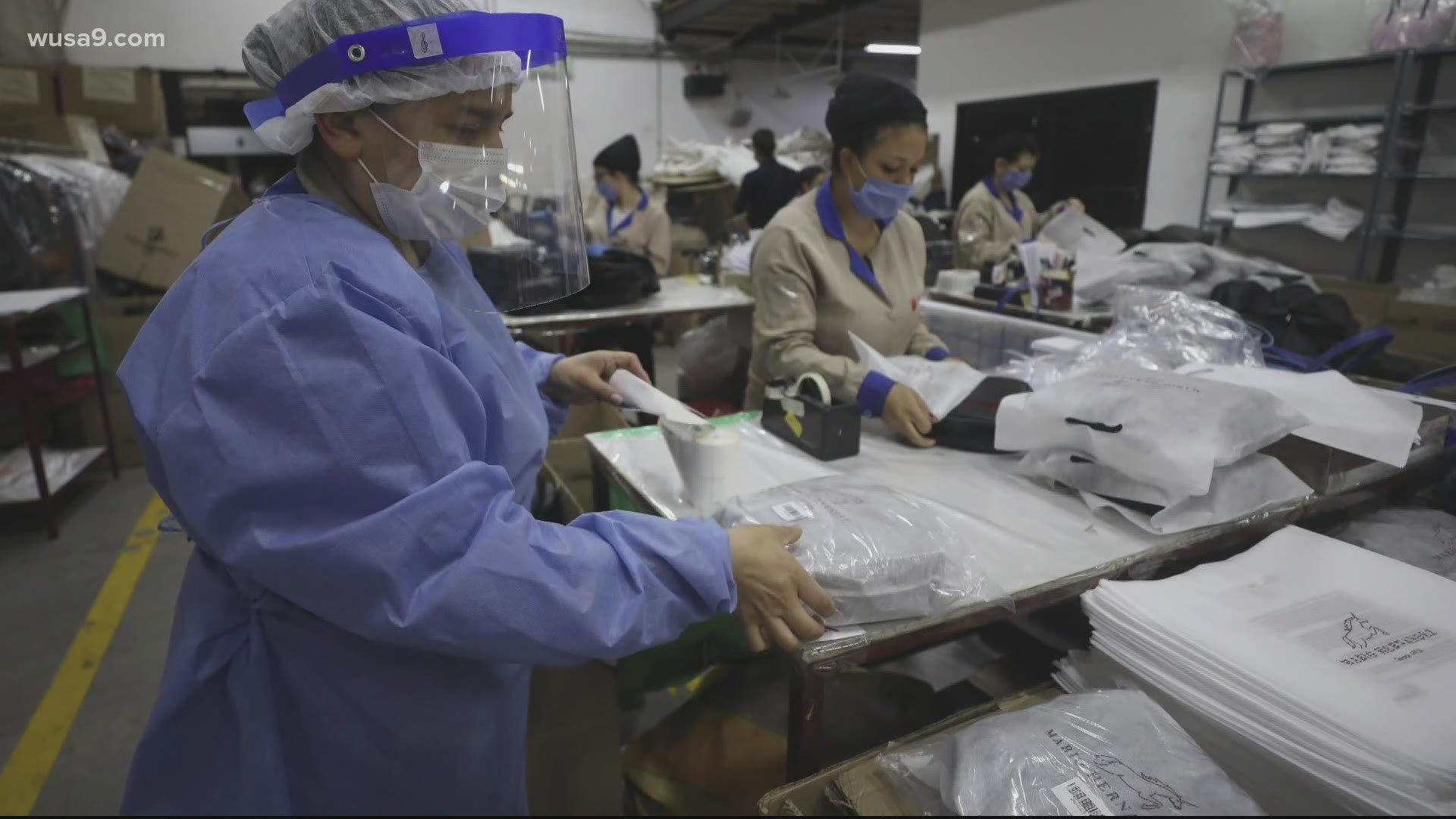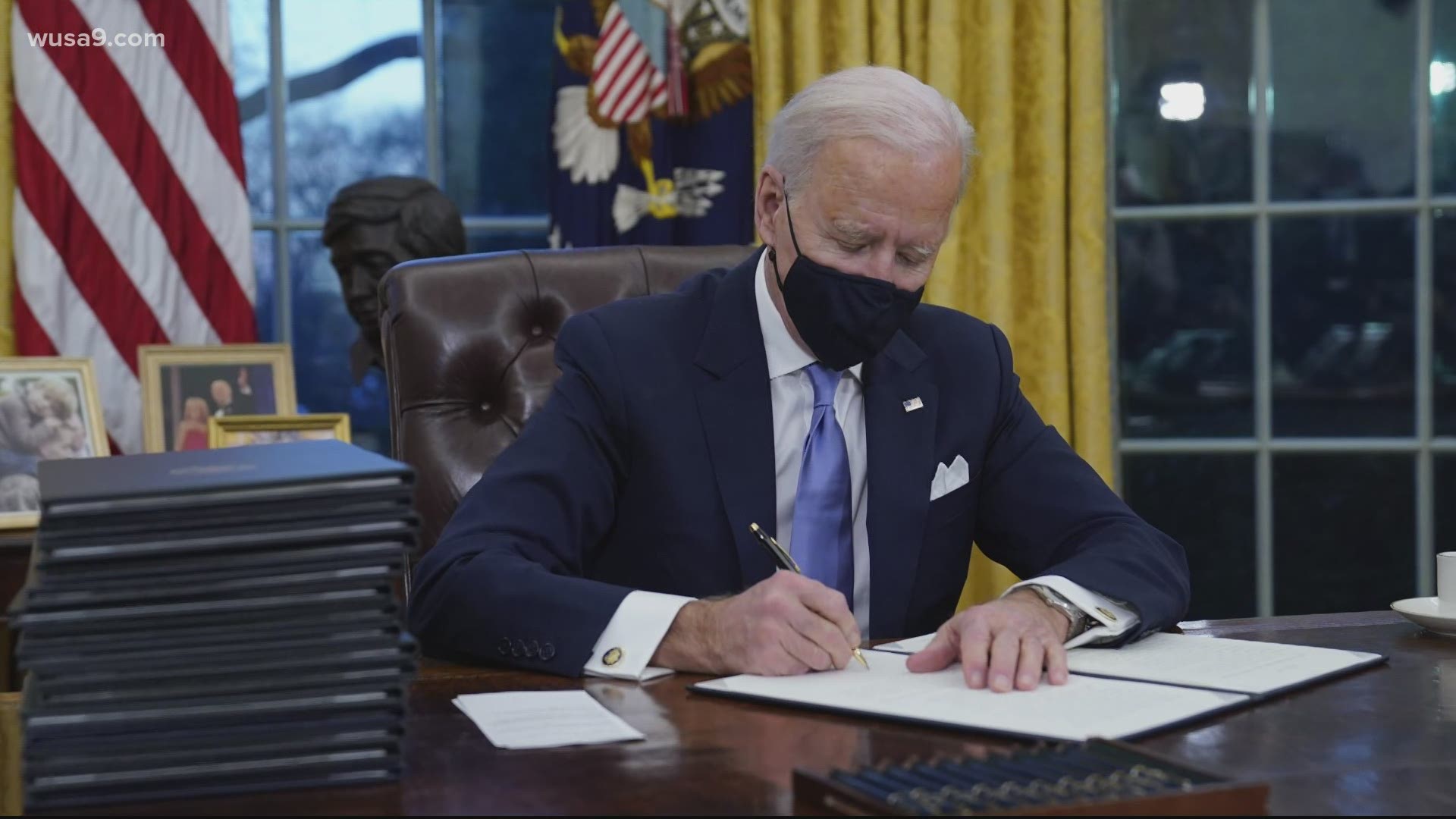WASHINGTON — President Joe Biden released his nationwide strategy for managing the COVID-19 pandemic on Thursday, including a plan to have 100 million Americans vaccinated in the first 100 days of office.
That has many wondering about the logistics of producing the vaccines and just how far the federal government can go to roll them out.
It all comes down to the Defense Production Act. Here's a look at its history and how it could influence future vaccine and testing rollout.
SOURCES:
- Mackenzie Eaglen, Resident Fellow at the American Enterprise Institute (AEI)
- Dr. Anand Parekh, Chief Medical Advisor at the Bipartisan Policy Center and a former HHS Deputy Assistant Secretary for Health
- Federal Emergency Management Agency (FEMA) explainer on the Defense Production Act
- Congressional Research Service report from March 2020
What exactly is the Defense Production Act, and how does it work?
The Defense Production Act (DPA) allows certain government agencies to request that the private sector help ramp up the production of necessary goods. According to FEMA, it's the primary way presidents can "expedite and expand the supply of materials and services from the U.S. industrial base needed to promote the national defense."
Basically, it's a way for the federal government to make sure that in a crisis, they have a quicker, streamlined way of getting essential supplies. The Biden administration intends to use the act to manufacture materials like vaccine vials, syringes, masks and other PPE.
"He has invoked the Defense Production Act as one way to quickly work with the private sector," Dr. Parekh explains. "To quickly manufacturer those goods so they can get out there on the front lines."
Mackenzie Eaglen says a key aspect of the DPA is that it requires a company to prioritize the federal government's needs over other customers.
"So if China's calling and they say 'we need our vials, too,' Uncle Sam gets it first in that scenario," she said. "That's part of the speeding up of the timeline, in terms of work."
How is it enacted?
The federal government works to determine exactly which supplies are needed, where, and how quickly. Then, they approach manufacturers to set up an agreement on compensation and timeline. Eaglen said it's actually written into the Act that they must prioritize small, struggling businesses. That's echoed by this report from the Congressional Research Service.
"Small businesses are given a contract award preference under the DPA, particularly as suppliers or vendors.," she said. "Congress wanted to note that you need to prioritize small businesses in areas of economic distress or decline or high unemployment."
There is a negotiation period that takes place before production begins. That involves an assessment of the way the contract with the federal government will temporarily alter their supply chains.
"They don't just get to invoke it and then it's free," Eaglen says. "They have to pay for companies needing to make rapid changes, to maybe retrain employees or to rework manufacturing lines or floors."
Another key detail: invoking the DPA does not mean that the federal government can now approach every company in the country and demand they produce whatever they want. The act is "invoked" for every individual contract that is signed.
We asked Eaglen if companies can reject to participate or sign a contract. She said technically it's possible, but very unlikely. She says because the DPA is often used for major crises, there is a sense of patriotism that comes with helping the federal government that probably keeps companies from saying no.
How will the Act affect the United States' pandemic response?
The Biden Administration is undergoing what's called a "gap analysis," while they work to determine what kinds of supplies are needed where and when in order to best respond to the pandemic.
"His team has identified 12 specific supplies related to personal protective equipment, testing and vaccines that the team believes is in short supply," Dr. Parekh explains. "So these are personal protective equipment, like N-95 respirators, specific gowns, and gloves. On the vaccine side, we're talking about the glass vials that store the vaccine and particular types of syringes. And on the testing side, we're talking about swabs, we're talking about various elements that go into the PCR test, as well as the kits themselves."
Invoking the act allows the federal government to ask private companies to help manufacture and distribute those necessary supplies efficiently and correctly. Health experts are hopeful that this will make it easier and safer for healthcare workers to fight the pandemic, and also help us quickly reach herd immunity and return to a form of normality.
When has it been used before?
The DPA has been in use since the Korean War. It's mostly been utilized by the Department of Defense to quickly produce things like weapons systems, tanks, aircrafts or munitions, according to Eaglen. She told us FEMA used it to help build temporary shelters after Hurricane Katrina, and the intelligence community uses it regularly.
"The federal government is very used to using the Defense Production Act," she says. "At the start of the pandemic, the Department of Defense loaned out its DPA contracting experts to other federal agencies like Health and Human Services to teach them how to best use the DPA."
The Trump administration said in August they had used the act more than 30 times to get supplies to respond to the pandemic. It was used at the time to supply testing equipment, ventilators, and PPE.
The Biden administration intends to build on and expand that groundwork set in the summer, this time including vaccine manufacturing and distribution.


